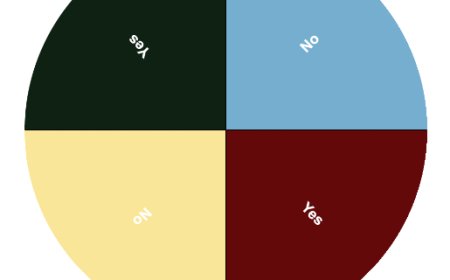How Cross-Platform Solutions Are Transforming Healthcare Apps
In today's fast-paced world, the healthcare industry is experiencing a digital revolution—and mobile apps are at the heart of it.
In today's fast-paced world, the healthcare industry is experiencing a digital revolutionand mobile apps are at the heart of it. From scheduling doctor appointments to managing chronic conditions, healthcare apps are making it easier for patients and providers to stay connected, informed, and proactive.
But there's one challenge that many healthcare organizations face: how do you develop apps that work seamlessly across both Android and iOS without doubling your time, budget, and resources?
The answer lies in cross-platform solutions, which are changing the game for healthcare app development. These technologies are helping developers create apps that function across multiple operating systems from a single codebase. And the impact on healthcare? Its nothing short of transformative.
What Are Cross-Platform Solutions?
Lets start with the basics. Cross-platform development allows a single app to run on multiple platformslike iOS and Androidwithout the need to build separate versions from scratch. This is achieved through frameworks like React Native, Flutter, or Xamarin, which let developers write one codebase and deploy it to different operating systems.
This approach saves time, reduces development costs, and ensures a consistent user experience across all devices.
In an industry like healthcare, where reliability, accessibility, and efficiency are crucial, these benefits are more than just convenienttheyre essential.
Why Healthcare Needs Cross-Platform Apps
Healthcare is becoming increasingly mobile. Patients want the ability to check test results, consult with doctors, and manage prescriptionsall from their smartphones. At the same time, medical professionals rely on mobile tools to access records, communicate with patients, and streamline workflow.
But developing separate apps for Android and iOS can be costly and time-consumingespecially when updates or compliance changes need to be rolled out quickly.
Thats where cross-platform solutions shine. They allow healthcare providers to build once and deploy everywhere, ensuring wider reach, faster updates, and a smoother experience for everyone involved.
1. Faster Time to Market
In healthcare, time is often a critical factornot just in treatment, but in how quickly technology solutions can be delivered to users. Whether you're launching a new telehealth platform or updating an existing app with COVID-19 resources, speed matters.
Cross-platform frameworks let developers move quickly by using a shared codebase. This cuts development time by 3050% compared to building separate native apps, allowing healthcare organizations to bring their solutions to market fasterand start helping people sooner.
2. Consistent User Experience
When it comes to healthcare, consistency is key. Patients expect a seamless experience, whether they're using an iPhone, an Android tablet, or a desktop browser.
Cross-platform solutions ensure the app interface, features, and navigation feel the same across all devices. This consistency builds user trust and helps eliminate confusioncritical factors when people are managing medications, tracking symptoms, or receiving care instructions.
3. Cost-Effective Development
Budget constraints are a reality for many healthcare organizations, especially nonprofits, clinics, or startups trying to innovate in the space. Building and maintaining two separate apps can be financially draining.
With cross-platform development, you only pay to build and support one codebase, which significantly reduces development and maintenance costs. This makes digital innovation more accessibleeven for smaller providersand ensures that more resources can be directed toward improving care.
4. Easier Updates and Compliance
Healthcare apps often need to evolve quickly to meet new regulations, fix bugs, or introduce new features. With separate native apps, this means making the same change twiceand testing it twice.
Cross-platform solutions simplify the process. Developers make changes once, and the update rolls out across both platforms. This not only saves time but also helps ensure compliance with data privacy regulations like HIPAA, which can be more easily enforced in a unified codebase.
5. Wider Reach and Better Accessibility
Patients come from all walks of lifeand they use different types of devices. If your healthcare app only works on one platform, you're automatically limiting your reach.
Cross-platform development removes this barrier by making apps accessible to a broader audience. Whether a patient uses an Android phone in a rural area or an iPad in a hospital, they can access the same tools, services, and support.
This inclusivity is especially important in public health efforts, where equal access can improve outcomes on a large scale.
Real-World Examples of Impact
Hospitals and health systems around the world are already embracing cross-platform development:
-
Telemedicine apps use Flutter to provide consistent virtual care experiences across smartphones and tablets.
-
Medication trackers built with React Native ensure patients on any platform can get daily reminders.
-
Remote patient monitoring tools can now update data in real-time across devices, making care more responsive and efficient.
These solutions are not only saving time and moneytheyre saving lives.
Final Thoughts
Healthcare is one of the most important industries to benefit from digital transformation. As mobile apps become central to care delivery and patient engagement, using the right technology to build those apps is more critical than ever.
Cross-platform solutions are enabling faster development, greater accessibility, consistent experiences, and cost-effective innovationall of which are crucial in a healthcare environment that demands speed, trust, and scalability.
By adopting cross-platform frameworks, healthcare organizations are not just building better appsthey're creating better patient experiences, improving clinical outcomes, and transforming the way care is delivered in the digital age.

































